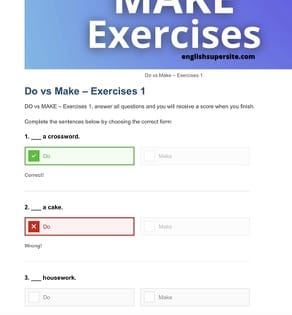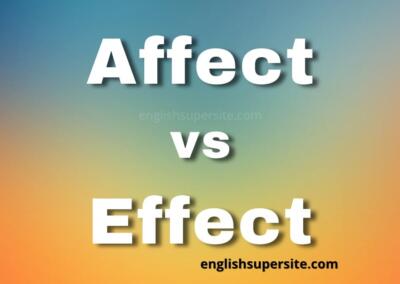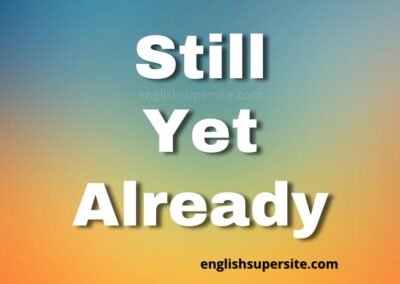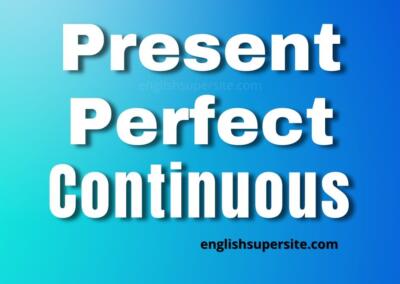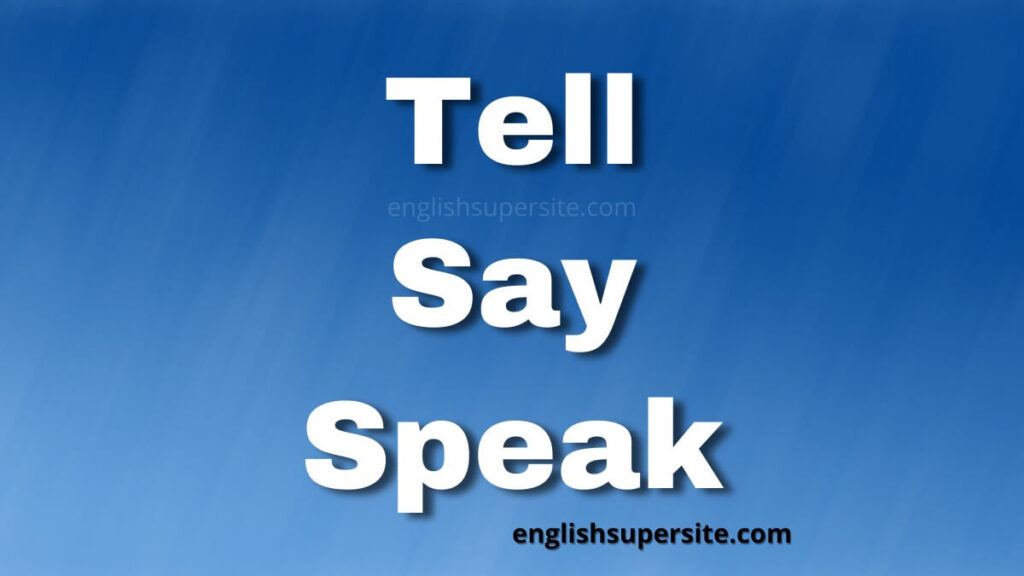
When to use: Tell – Say – Speak — Told – Said – Spoke.
Tell, say and speak are all irregular verbs.
| Present | Simple Past | Past Participle |
|---|---|---|
| tell | told | told |
| say | said | said |
| speak | spoke | spoken |
Tell – Told
Usually we add the person that we or someone else is talking to.
To tell something to someone.
Study these examples:
- Tell me what happened.
- Did you tell her what is going on?
- You should tell him to study more.
- Don’t worry, I won’t tell her about that.
- He told me that he would be late.
- Please, tell me what’s happened!
- I told him that his new car is great.
- Let me tell you something!
We also use tell without an indirect object with words like: the truth, a lie, a joke, a story.
- You should always tell the truth.
- You should never tell a lie.
- He is good at telling jokes.
- She can tell lots of stories.
Say – Said
Usually we do not add the person that we or they are talking to.
Study these examples:
- Helena said she is going to the party.
- She said she was surprised by the latest news.
- Can you repeat what you just have said, please?
- He said that he is leaving early today.
- I don’t know why she said that!
- Like I said yesterday, we are not going to the party!
We also use say with to:
- He said to me: I’m your father. We’ve never met before.
Speak – Spoke – Spoken
We use speak when we are going to talk with someone or to say that someone speaks a language.
Study these examples:
- John speaks English.
- Mary speaks Spanish and Mark speaks German.
- Do you speak English?
- How many languages do you speak?
- Mark spoke with his boss about the new project.
- He will speak with his employees about that.
- He spoke for two hours!
Study Also:
Abbreviations Adjectives Adverbs Articles Career Comparative Confusing Words Conjunctions Exercises Future Continuous Future Perfect Future Perfect Continuous Grammar Interjections Irregular Verbs Learn English Linking Words Listening Exercises Mistakes Nouns Past Continuous Past Perfect Past Perfect Continuous Plural Prepositions Present Continuous Present Perfect Present Perfect Continuous Pronouns Pronunciation Question Tags Quiz Quotes Reading Simple Future Simple Past Simple Present Spelling Strategies Superlative Tests Transition Words Verbs Verb Tenses Vocabulary
Share with your friends!

